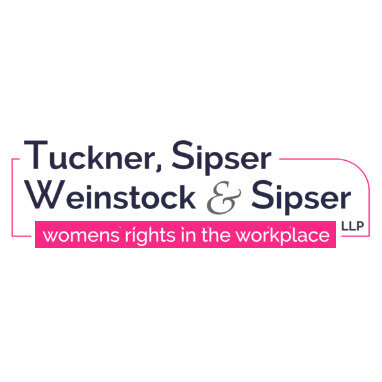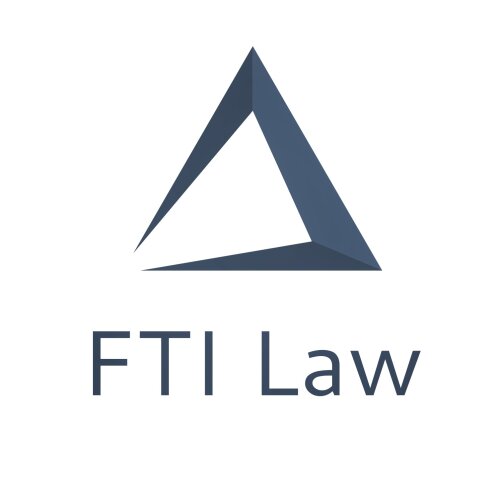Best Job Discrimination Lawyers in New York City
Share your needs with us, get contacted by law firms.
Free. Takes 2 min.
List of the best lawyers in New York City, United States
1. About Job Discrimination Law in New York City, United States
Job discrimination law in New York City protects workers from unfair treatment based on protected characteristics in all aspects of employment. This includes hiring, firing, pay, promotion, and performance evaluations. In NYC, the local law often provides broader protections than federal law, and enforcement is handled by city agencies in addition to state and federal authorities.
The core framework combines local, state, and federal rules. At the city level, the New York City Human Rights Law (NYCHRL) is administered by the NYC Commission on Human Rights. The NYCHRL operates alongside state and federal statutes to guard workplace rights for NYC residents.
The NYC Commission on Human Rights states that the NYCHRL prohibits discrimination in employment on the basis of protected characteristics such as race, color, religion, sex, national origin, disability, age, sexual orientation, gender identity, and more. NYC Commission on Human Rights
Workers in New York City who believe they have faced discrimination can pursue remedies through administrative complaints, mediation, or, in some cases, civil court actions. Understanding who to contact and when to act is essential in NYC, where local protections may apply even when federal or state law does not fully cover the situation.
Federal anti discrimination protections under Title VII of the Civil Rights Act also apply to many NYC workplaces. For reference, see the U S Equal Employment Opportunity Commission. EEOC
2. Why You May Need a Lawyer
Getting legal help in New York City can clarify rights, preserve deadlines, and improve outcomes. Below are concrete, NYC specific scenarios where hiring a solicitor or attorney with job discrimination experience often helps.
- A hospital administrator disciplines or terminates a nurse after the nurse requests a disability accommodation that would enable them to continue working in NYC hospitals.
- A NYC tech firm pays two programmers differently for the same work after the second programmer reveals a protected characteristic, such as gender identity or pregnancy status.
- A retail employer in Queens creates a hostile work environment by permitting daily harassment based on religion or national origin, and retaliation follows after a complaint is filed.
- An employee is denied reasonable accommodations for a documented disability, resulting in unintended safety risks on the job in a New York City construction site.
- A New York City courier is fired after filing a complaint about discriminatory scheduling practices that disadvantage a protected class.
- A city employee suspects retaliation after reporting discrimination and seeks to navigate parallel state and federal avenues for relief.
In New York City, a lawyer can help assess options across city, state, and federal avenues, prepare formal complaints, negotiate with employers, and represent you if litigation becomes necessary.
3. Local Laws Overview
The following laws govern job discrimination in New York City, with names you will often hear in practice and references to their enforcement bodies.
- New York City Human Rights Law (NYCHRL) - Administrative Code Title 8 governs employment discrimination in New York City and is enforced by the NYC Commission on Human Rights. The law protects a wide range of characteristics including race, religion, sex, pregnancy, disability, age, sexual orientation, and gender identity.
- New York State Human Rights Law - Executive Law Article 15 prohibits discrimination in employment across the state, with enforcement by the New York State Division of Human Rights (DHR). It covers similar protected classes and often acts in tandem with city law in NYC.
- Civil Rights Act, Title VII - Federal law protecting employees from discrimination based on race, color, religion, sex, and national origin. It provides a baseline standard that applies to many NYC workplaces, with enforcement by the U S Equal Employment Opportunity Commission (EEOC).
Employees in New York City may file complaints with multiple bodies depending on the scenario. The NYCHRL can be particularly protective in city workplaces and private employers operating in NYC. For time limits and procedural steps, check the official guidance from each agency.
The NYS Division of Human Rights enforces the New York State Human Rights Law for state wide protections, while the NYC Commission on Human Rights enforces the local NYCHRL within the city limits. New York State Division of Human Rights
4. Frequently Asked Questions
What is job discrimination under New York City law?
Job discrimination refers to unfavorable treatment in hiring, pay, promotion, or termination based on protected characteristics. NYCHRL often covers a broad set of protections beyond federal law. See guidance from the NYC Commission on Human Rights for specifics.
How do I start a discrimination complaint in NYC?
Start by identifying the appropriate agency based on your location and the alleged act. The NYC Commission on Human Rights handles NYCHRL claims; the NYS Division of Human Rights handles state law claims, and the EEOC handles federal claims.
What is the deadline to file a complaint in NYC?
NYCHRL complaints with the NYC CHR typically must be filed within one year of the discriminatory act. NYSDHR claims must be filed within one year, while federal EEOC intake can occur within 180 days to 300 days depending on state and local participation.
Do I need a lawyer to file a discrimination complaint?
While not mandatory, a lawyer helps ensure deadlines are met, evidence is organized, and legal arguments are strong. In NYC, counsel can also help with mediation or settlement discussions.
What remedies can a lawyer seek in a NYC discrimination case?
Remedies may include back pay, front pay, reinstatement, promotions, behavioral or policy changes, and attorney fees. NYC courts or agencies may order injunctive relief to stop ongoing discrimination.
What is a hostile work environment and how is it proven?
A hostile environment arises when harassment based on protected status is pervasive enough to affect job performance or create a hostile atmosphere. Proof can include patterns of comments, conduct, and the impact on work duties.
Can I sue in federal court for discrimination that occurred in NYC?
Yes, you may sue in federal court under Title VII if the claim meets the necessary criteria. In most cases, filing with the EEOC or corresponding state agency is required before court action.
Do I need to prove intentional discrimination?
NYCHRL often recognizes both intentional discrimination and policies that disproportionately affect protected groups. Courts may examine the outcomes and disparate impact in addition to intent.
What evidence should I collect for a discrimination claim?
Gather emails, pay stubs, performance reviews, scheduling records, witness statements, and any communications showing adverse actions or requests for accommodations. Document dates and details precisely.
Is mediation an option in NYC discrimination cases?
Yes, mediation is commonly offered by agencies like the NYC CHR and NYSDHR and can lead to an amicable settlement without a full hearing. Success depends on the cooperation of both sides.
How much does it cost to hire a discrimination attorney in NYC?
Costs vary by attorney and case complexity. Some lawyers offer initial consultations at reduced rates. Expect hourly rates to range from a few hundred dollars to higher depending on experience and case type.
What is the difference between city, state, and federal claims in NYC?
City claims rely on NYCHRL with NYC CHR enforcement; state claims rely on NYSHRL enforced by NYSDHR; federal claims rely on Title VII enforced by the EEOC or federal courts. Each has different time limits and remedies.
5. Additional Resources
Access official organizations and government bodies for guidance, forms, and procedural information.
- U S Equal Employment Opportunity Commission (EEOC) - Federal agency enforcing civil rights laws in employment; provides information on filing charges, time limits, and mediation options. https://www.eeoc.gov
- New York State Division of Human Rights (NYSDHR) - Enforces the New York State Human Rights Law in employment across New York State; intake processes and complaint procedures are described here. https://dhr.ny.gov
- New York City Commission on Human Rights (NYC CHR) - Enforces the NYC Human Rights Law within New York City; guidance on filing complaints, protected classes, and remedies. https://www.nyc.gov/site/cchr/index.page
6. Next Steps
- Identify which protections apply to your situation by mapping your facts to NYCHRL, NYSHRL, and federal Title VII protections. This helps determine the right filing path.
- Gather key evidence now. Collect emails, pay records, performance reviews, requests for accommodations, and any harassment logs. Create a chronologic timeline of events.
- Check filing deadlines with the relevant agency. NYC CHR complaints generally must be filed within one year; NYSDHR within one year; EEOC intake windows vary by basis and location.
- Consult a NYC discrimination attorney for a no obligation evaluation. Bring all documents and a short timeline of events to the consultation.
- Decide on a filing strategy with your attorney. Options include pursuing a city or state complaint, or initiating mediation, or filing a civil action if appropriate.
- If proceeding with a complaint, prepare a formal complaint with the chosen agency or with your attorney. Ensure the document clearly states protected characteristics and the discrimination acts.
- During and after filing, keep detailed records of all communications with your employer. Document any retaliation or further discriminatory acts promptly.
Lawzana helps you find the best lawyers and law firms in New York City through a curated and pre-screened list of qualified legal professionals. Our platform offers rankings and detailed profiles of attorneys and law firms, allowing you to compare based on practice areas, including Job Discrimination, experience, and client feedback.
Each profile includes a description of the firm's areas of practice, client reviews, team members and partners, year of establishment, spoken languages, office locations, contact information, social media presence, and any published articles or resources. Most firms on our platform speak English and are experienced in both local and international legal matters.
Get a quote from top-rated law firms in New York City, United States — quickly, securely, and without unnecessary hassle.
Disclaimer:
The information provided on this page is for general informational purposes only and does not constitute legal advice. While we strive to ensure the accuracy and relevance of the content, legal information may change over time, and interpretations of the law can vary. You should always consult with a qualified legal professional for advice specific to your situation.
We disclaim all liability for actions taken or not taken based on the content of this page. If you believe any information is incorrect or outdated, please contact us, and we will review and update it where appropriate.
















